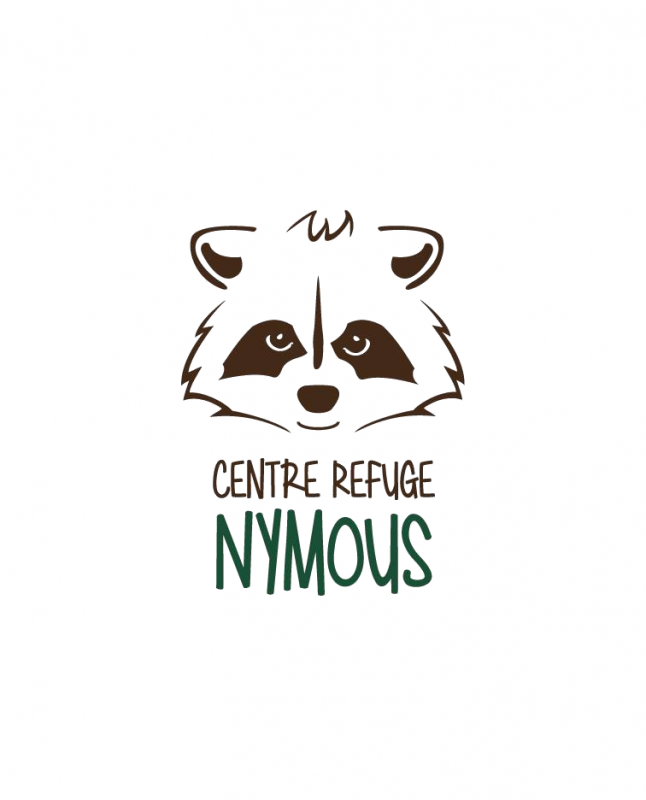
Important: please read and follow the links
THE OBSERVATION CENTER
http://www2.publicationsduquebec.gouv.qc.ca/dynamicSearch/telecharge.php?type=3&file=/C_61_1/C61_1R5_A.HTM
At this time, we only have a part of the refuge, being the observation center which lodges the orphaned babies who are imbued by the human for educational purposes, who are exposed to the public for educational, recreational, scientific or touristic purposes and for zootherapy.
They have follow-ups with the veterinary clinic, are vaccinated and dewormed as per the protocols established by, and even above and beyond, the requirements of the “Ministry of Forests, Wildlife and Parks” (Ministère des Forêts, de la Faune et des Parcs - MFFP) http://www.mffp.gouv.qc.ca/english/department/index.jsp
We have established a clear protocol for the visitors. Each visitor receives simple and clear instructions and remains in our presence and under our supervision. No one is allowed or has the right to access the site without being in our presence.
THE REFUGE AND REHABILITATION AREA
This area should be completed in the Spring of 2016.
This area will be very different and its mission will be to save and ensure the health of the animals who will be rehabilitated in nature in chosen and adapted zones, and as per the indications of the “MFFP” in respect to the listed populations.
These animals will have every care needed and will not have any contact with the visitors in order to ensure their survival.
MAN IS ALSO A PREDATOR AND
MUST UNFORTUNATELY BE SEEN AS SUCH
“I want one!”
Think not, you don’t want one!
The raccoon is very destructive so either you want a raccoon or you want a house!
To keep a raccoon or any other wild animal in a cage is one of the worst misfortunes it can endure.
And the law is clear on the subject: http://www2.publicationsduquebec.gouv.qc.ca/dynamicSearch/telecharge.php?type=2&file=/C_61_1/C61_1_A.html
Here are the multiple required permits and the details of the permits at this link: http://www2.publicationsduquebec.gouv.qc.ca/dynamicSearch/telecharge.php?type=3&file=/C_61_1/C61_1R20_1_A.HTM
NOTE: WE REPEAT...A WILD ANIMAL MUST LIVE IN THE WILD.
You must respect your distances and keep calm in the presence of an unknown animal.
If it seems hurt, secure the area around it without containing it or restraining it.
For example, if a raccoon is hurt or sick, it can become unpredictably aggressive and can attack and seriously injure.
Avoid all possible contact with your pets.
Monitor the sick or hurt animal from a distance.
Contact the various services noted below.
Before you decide that the animal is orphaned, you must get the proper information from people who are familiar with the habits of wild animals.
For example, the mother may be absent for a variable time span, depending on the age of the babies and the species.
What we wish for is the respect and the shared knowledge of the wildlife.
For example, raccoons are wonderful animals but are not categorized as domestic but indigenous and the laws on such animals are found at this link:
http://www2.publicationsduquebec.gouv.qc.ca/dynamicSearch/telecharge.php?type=3&file=/C_61_1/C61_1R5_A.HTM
It is therefore illegal to have one “in captivity” as fines apply.
As long as you do not hold the required permits, you expose yourself to these fines.
Not to mention the possibilities of the transmission of communicable diseases, such as roundworms https://en.wikipedia.org/wiki/Baylisascaris_procyonis, and other diseases.
In addition, if you do not hold the required permit, you will not have the opportunity to obtain the services of a veterinary because he/she will not go against the law.
Therefore, if you see an orphaned animal, please contact:
A refuge in your area, or;
The wildlife ministry, or;
An emergency animal intervention center, or;
the local SPCA or zoo.
These people can guide you by indicating the services in your area.
Also know that when a refuge shelters an animal, orphaned or hurt, the fees of the refuge increase, so for the love of these animals, please follow your heart and donate to help.
Wildlife animal refuges/shelters live only by public donations and these are difficult to obtain, unless otherwise repeatedly calling upon the public for help.
Having a refuge and dedicating your life to it is a mission, not a career plan.
Centre-Refuge-Nymous